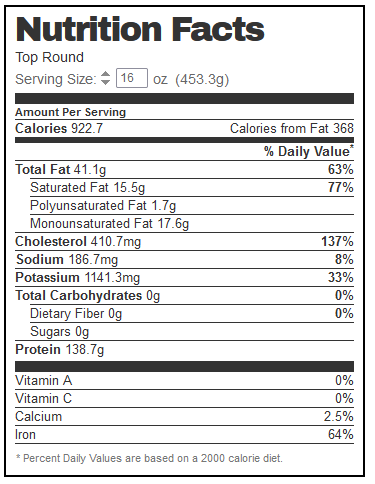Protein—and when we say “protein,” we mean amino acids—doesn’t have much to do with the liver except to provide the raw material for gluconeogenesis. The nitrogen removed from the amino acids during this process then gets used to form nitric oxide for helping control blood pressure.
Mainstream thinking believes that the presence of amino acids in urine (proteinuria) is a sign that the kidneys are being damaged by the protein, but it is actually more likely that high serum glucose and insulin from eating a high-glucose (i.e., high-carb) diet are the cause of the damage, and the protein in the urine is the result, not the cause. Cutting the carbohydrate intake should help greatly with healing the kidneys.
Protein is essential to the human diet. You need a reasonable amount, in the range of 1.0-1.5 g per kg of lean mass a day. The body cannot store amino acids, the way it can store glucose and fats, so a certain minimum of protein is required each day. The protein does not supply energy, under normal circumstances; it is needed for structural purposes, and to provide nitrogen. (The human body cannot utilise nitrogen, unless it comes in the form of an amino acid; otherwise, simply breathing in and out would provide us all the nitrogen we needed.)
Some source of energy is also required, the normal sources being fats and carbohydrates. Given the bad effects of consuming too much carbohydrate, a well-formulated ketogenic diet relies on fat intake to provide energy. Unlike glucose, fat intake has almost no effect on insulin, so it is a much better fuel source. People often fear to eat fat, thinking that it will interfere with the use of body fat, but Dr. Stephen Phinney has data to show that on a well-formulated ketogenic diet, fatty acid metabolism increases enough for the body to make use of both dietary fat and excess stored fat.
But the body will not make use of its fat reserves if we stint on the calories, which is why he recommends eating enough fat to satisfy our hunger. When we do that, the body will set our appetite at a level that will allow excess stored fat to be used. Dr. Phinney says that when people eat to satiety, if they have excess fat to shed, they spontaneously eat about 1000 calories less than their energy expenditure, the balance being made up from stored fat. As the excess stored fat is used up, our appetite naturally increases until we reach the point where there is no more excess to use and we are meeting our daily energy needs from our food.
Of course, if we don’t have any excess fat to begin with, we might actually put on a bit of weight on a well-formulated ketogenic diet. So many people use this way of eating to shed poundage (kilogrammage?  ) that we tend to forget that a ketogenic diet is not a weight-loss diet, but rather a weight-normalisation diet.
) that we tend to forget that a ketogenic diet is not a weight-loss diet, but rather a weight-normalisation diet.


 ) that we tend to forget that a ketogenic diet is not a weight-loss diet, but rather a weight-normalisation diet.
) that we tend to forget that a ketogenic diet is not a weight-loss diet, but rather a weight-normalisation diet.

